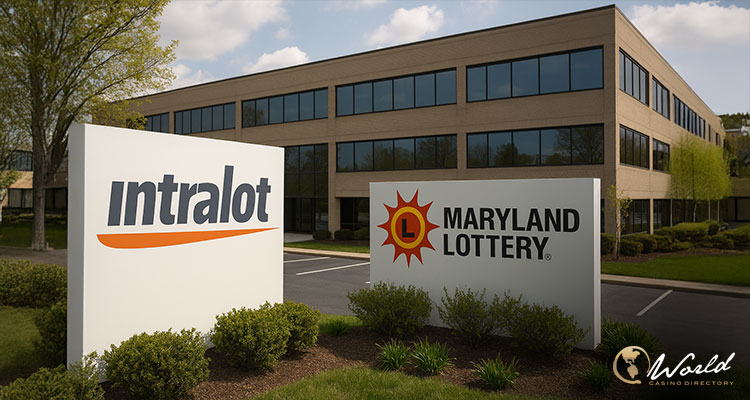In a surprising reversal, the Maryland State Lottery and Gaming Control Agency (MLGCA) has withdrawn its previous decision to award Intralot, Inc., the contract for the state’s Central Lottery Monitoring and Control System, following a deeper review of the company’s bid. The contract, initially valued at approximately $260 million over a 10-year term, was rescinded due to concerns over Intralot’s adherence to subcontracting requirements stipulated in the Request for Proposals (RFP).
The announcement came just weeks after Intralot, a subsidiary of the Greek gaming technology provider INTRALOT S.A., was selected over two competitors—Scientific Games and IGT. At the time, Intralot’s proposal had been described as technically robust and financially superior to its rivals. However, by August 1, Maryland regulators publicly stated that Intralot’s submission failed to meet the mandatory minimum percentage of subcontracting to local businesses, which is a requirement under state law.
MLGCA Director John Martin remarked, “As an independent agency, our review process is designed to ensure that proposals don’t advance without meeting all requirements. Upon determining that our initial assessment was incorrect, we have taken appropriate action to move forward with the procurement process in accordance with procurement law.”
Subcontracting Standards Trigger Procurement Setback
The crux of the issue centers on subcontracting commitments. Maryland requires bidders to meet specific thresholds in involving local subcontractors in state contracts. The MLGCA initially deemed all three bidders, including Intralot, compliant. However, a reassessment led the agency to conclude otherwise, prompting a procedural course correction and the revocation of Intralot’s award.
The agency has since named Scientific Games, previously ranked second, as the new recommended offeror. However, the procurement process remains open, with the final contract still pending approval by the Maryland Board of Public Works.
A spokesperson for the MLGCA noted that since the procurement is still active, “We aren’t able to comment on active procurements. The BPW will consider the contract award at a future date.”
Intralot Disputes Decision and Eyes Legal Options
Intralot has expressed strong disagreement with Maryland’s reversal, describing the decision as unexpected and unjustified. In a statement released on August 4, the company asserted, “This decision comes as a great surprise, especially considering that Intralot, Inc. had allocated a significantly higher percentage of the project to local subcontractors than the minimum required.”
According to the firm, it had submitted detailed information about its subcontracting plans, and the commission had acknowledged the legitimacy and scope of its subcontractors’ involvement during the initial evaluation.
“The bid submitted by Intralot, Inc. is technically sound and by far the most financially advantageous, significantly outperforming the second-best offer,” the company added. “The Company reserves all its legal rights and intends to pursue every legal remedy available to protect the interests of its shareholders.”
D.C. History Adds Context to Scrutiny
While Maryland regulators have not detailed precisely how Intralot’s bid failed to meet the subcontracting threshold, the company’s history with subcontractor-related issues in neighboring Washington, D.C., casts a long shadow.
In 2019, Intralot secured a controversial no-bid contract with the D.C. Lottery to provide regulated sports betting services via its GambetDC platform. That deal later came under fire for allegedly circumventing local small business laws.
A probe by the D.C. Attorney General’s office revealed that Intralot had falsely claimed to be working with a local subcontractor, Veterans Services Corporation (VSC), to meet contracting requirements. In reality, Intralot funneled most of the work through another affiliate while VSC failed to redistribute required revenues to other small businesses.
In January, Intralot agreed to pay a $6.5 million settlement after investigators concluded that it had misled city officials. Attorney General Brian Schwalb called the arrangement “a sham from the start — an elaborate scheme to secure a lucrative, high-profile opportunity on a sole-source basis while circumventing the district’s small business contracting laws.”
Although the MLGCA has not linked its current decision to the D.C. controversy, the similar nature of the allegations in both jurisdictions may have influenced the decision to revisit Intralot’s proposal with greater scrutiny.


